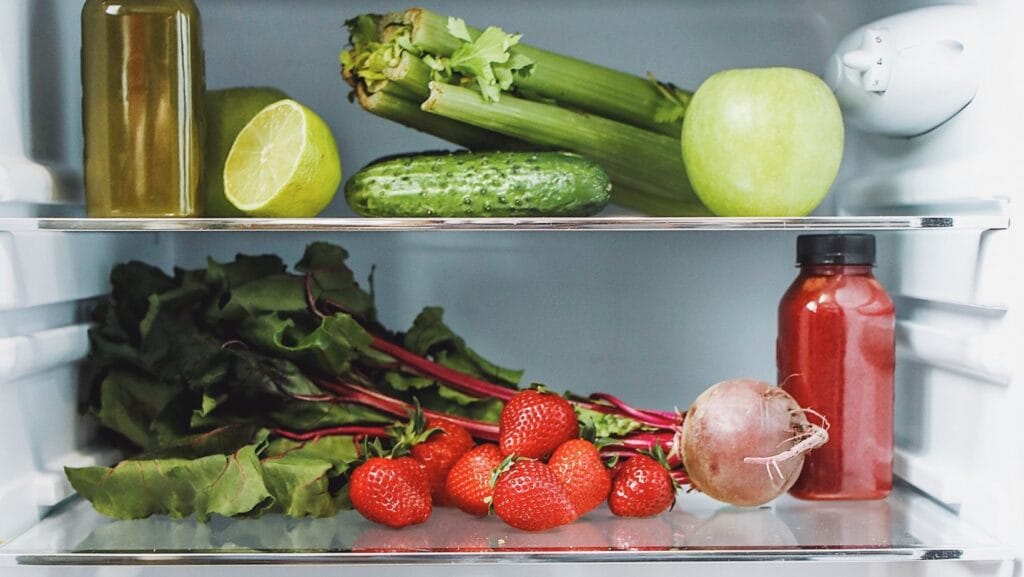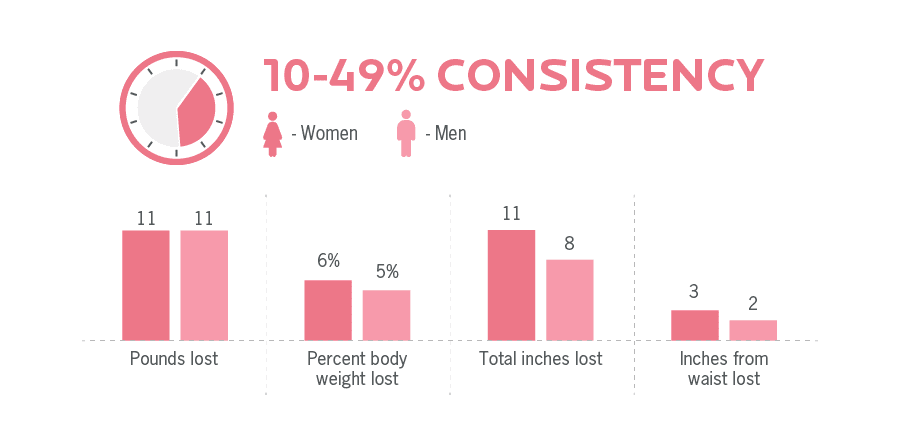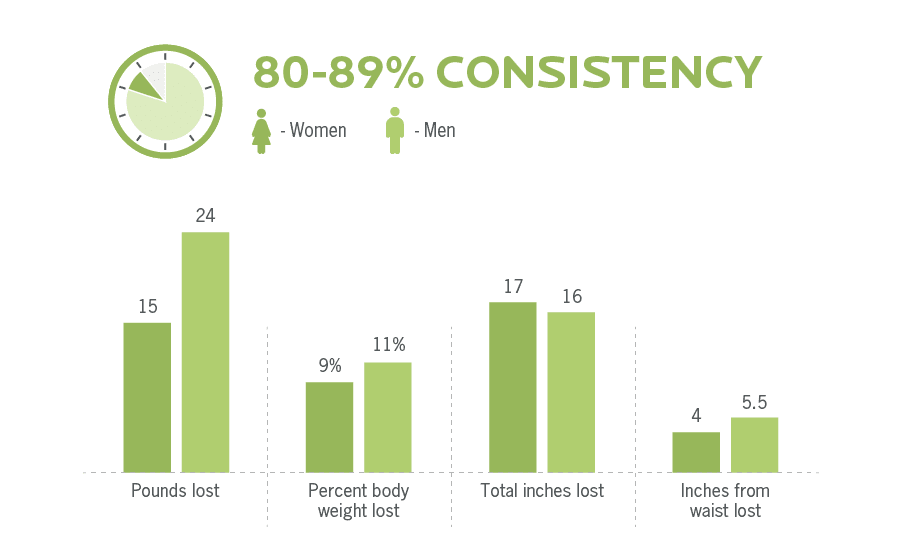So we talk about a good average weight loss per week to be around 1.5-2lbs per week. This is a rough guide but it seems a good ballpoint to aim for sustainable weight loss to happen (and continue for the longer term).
So hooow you might ask can we make a consistent weight loss of 1.5-2lbs per week happen exactly?
Well. A consistent weight loss requires CONSISTENT actions.
Yup, actions that move us closer to our goals each week with consistency.
That’s it. Weekly consistency of the right actions.

And, here’s a list of the basics, the practices that give the most pay-off for your energy and attention:
- Eat slowly, to 80% full, consistently.
- Learn and follow your body cues, consistently.
- Eat good quality food, consistently.
- Be active regularly.
- Do the right things for your goals, consistently.

The great news.
Just putting in some effort—no matter how small—changes things.
Changing your body doesn’t require 100% consistency.
What happens when people do their habits and workouts less than half of the time?
You might assume their efforts are a total waste.
You’d be wrong.
People lost weight anyway.
Clients who are less than 50% consistent—but stay in the programme for the full year—wind up losing between 5-6% of their total body weight.

Precision Nutrition Data.
Now, 5-6% loss of body weight might not sound like much, but you can see the average weight loss for both men and women was 11 pounds. That’s sustained weight loss—something that stays with you, and something you can build on.
And people did it by kinda-sorta practicing some small healthy habits, not following rigid meal plans or extreme diets that eliminate entire food groups.
People also got healthier.
That’s because research suggests a 5-6% decrease in body weight can lead to:
- better cardiovascular health
- decreased cancer and diabetes risk
- better sleep (with less apnea)
- better mood
- less inflammation
- better immunity; and maybe best of all…
- a zestier sex drive.

Even super-dramatic changes don’t require 100% consistency.
As you may know, some clients see HUGE dramatic changes using the Precision Nutrition method that our coaches here at Glevum have studied with.
Of course, if you’re after big changes, you’ll have to be more consistent, and make more tradeoffs or adjustments to your lifestyle.
But even so, you still don’t have to be perfect.
PN data shows that being 80%-89% consistent with your nutrition and lifestyle habits can result in significant—and, more importantly, sustained—losses in body weight and waist size.

Precision Nutrition Data.
How does this level of consistency take shape in real life?
Practise: eating nutritious meals, made of mostly whole, fresh, minimally processed foods with lots of good stuff in them. (PN friendly meals)
If you eat 4 meals a day, again, that’s 28 meals a week. Achieving 80% consistency means about 22-23 meals are “PN-friendly.” And that means 5-6 meals might be “less optimal.”
Now suppose you’re trying to cut out desserts.
If you’re used to eating dessert every evening, then 80% consistent would mean skipping dessert about 5-6 times over the course of the week.
That’s a big change, but it doesn’t mean total dessert deprivation. You’d still have 1-2 desserts to enjoy each week, and the rest of the week is highly consistent. Double win!

Just making some effort—however inconsistent and imperfect—can make you feel better about how your body looks, feels and moves.
Consistency creates confidence.
The more consistent people were, the better they felt about life in general.
In part, this happens because people feel good about the changes they see in their bodies, such as less pain, more fitness, and the ability to do more movements, more easily.
But it also happens because people are acting on their own behalf.
We gain positive energy, confidence, and resilience after and because we act, not the other way around.
No perfection required.
You can still become, at last, the healthy, thriving, confident person you’ve wanted to be—just by putting in whatever effort you’ve got.
Whether that’s 40%, 60%, or 80%, your best really is good enough.


